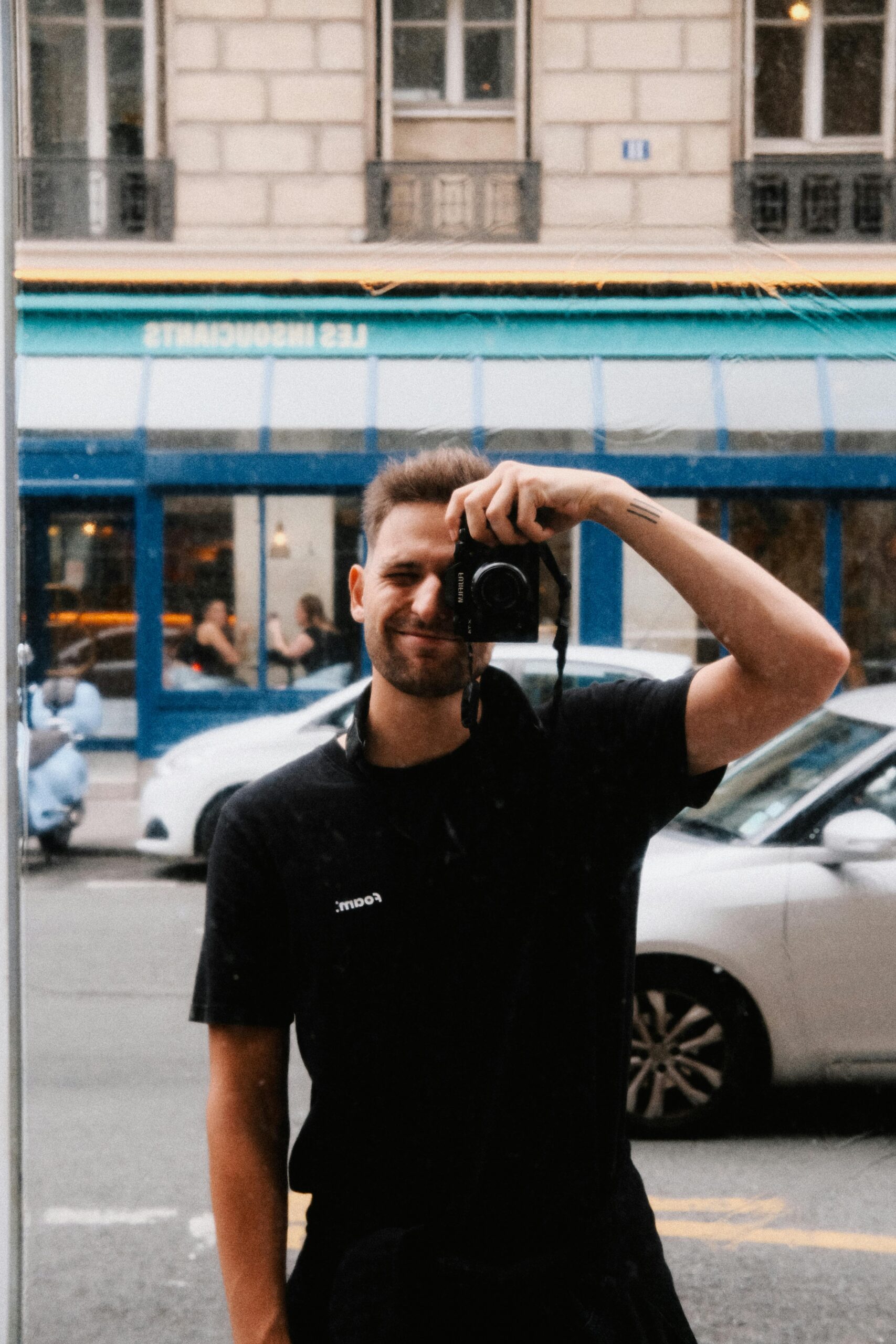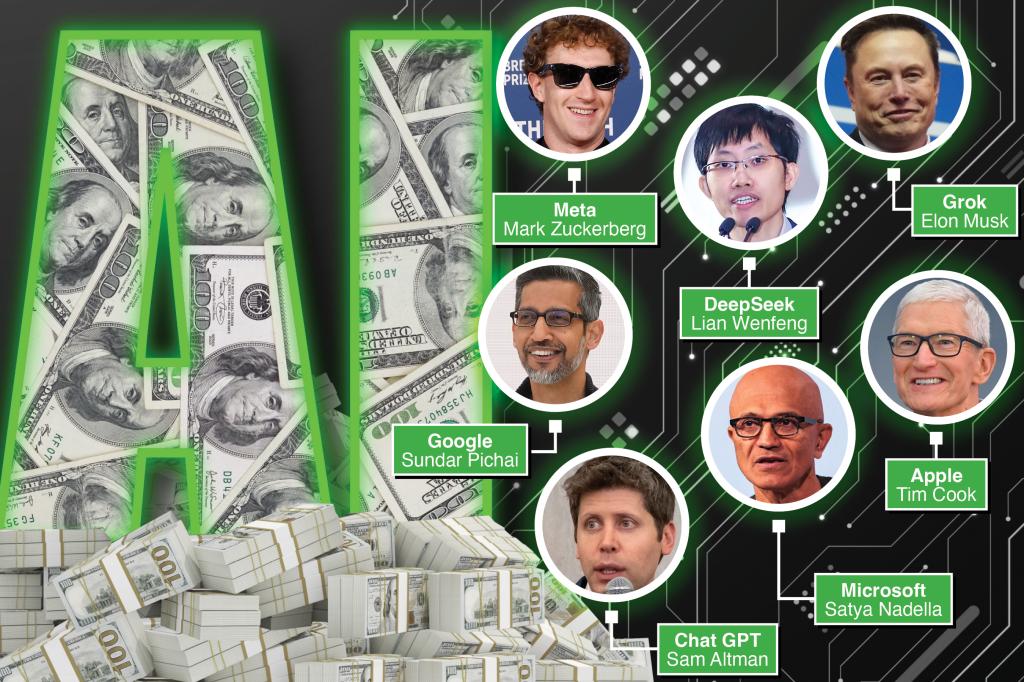The Battle for AI Supremacy: Titans Clash in Silicon Valley
Think of it as an intense science fair, but set within the confines of a UFC octagon.
Visionaries and industry leaders, including Elon Musk and Sam Altman, are locked in a fierce contest for dominance in the artificial intelligence realm.
Various tactics are on display, from legal maneuvers and talent poaching to social media exchanges, underscored by the emergence of a surprising competitor from abroad.
This week, Musk indicated potential legal action against Apple, claiming antitrust violations due to perceived preferential treatment toward Altman’s OpenAI, a company in partnership with Apple. Both Altman and Apple refuted these allegations.
In retaliation, Altman accused Musk of manipulating his platform, X, to serve his interests while undermining rivals. Musk dismissed this assertion as “bull—t” and branded Altman a “liar,” continuing their online feud throughout the evening.
These tensions arise from wealthy individuals driving technological innovations that could reshape the world.
Perhaps this intense rivalry is fueled by the power that AI wields over public opinion, as noted by Gary Marcus, a noted AI critic and emeritus professor at NYU. “Those who control AI systems wield significant influence over how people think,” he stated. “It’s all about power and the ability to control information.”
Musk and Altman are not alone in this fierce competition. Microsoft, armed with a vast user base, along with Mark Zuckerberg and his financially potent Meta, Apple’s beloved hardware, and Google’s pervasive search capabilities, are also in the fray.
Emerging from China is DeepSeek, an AI initiative led by Liang Wenfeng, a co-founder of the hedge fund High-Flyer. DeepSeek has garnered attention, developed for under $6 million— a fraction compared to the hundreds of millions invested by U.S. firms in AI technologies.
In this contest, different players possess unique advantages. OpenAI appears to be leading, having released its ChatGPT product first, which has become widely adopted.
“ChatGPT has truly set itself apart,” remarked Tony Wang, a portfolio manager at T. Rowe Price, during a recent CNBC broadcast. “Consumer engagement with ChatGPT is off the charts.”
Musk was an original partner at OpenAI but left in turmoil over a desire for it to remain free and open source. This departure took place in 2018, just before Microsoft began its extensive investment in OpenAI, totaling nearly $14 billion over the years.
Zuckerberg, alongside his wife Priscilla Chan, heads up Meta, which reportedly offers incentives exceeding $100 million to attract top AI talent. A Meta executive labeled Altman’s claims as “dishonest.” While specific figures weren’t disclosed, it appears some AI experts moved from OpenAI to Meta shortly after Altman’s statements.
Meanwhile, Meta is allocating $72 billion this year to bolster its AI initiatives, a significant increase from the previous year’s $42 billion budget, which includes a $14.8 billion acquisition of a 49% stake in ScaleAI, propelling its young CEO, Alexandr Wang, and co-founder Lucy Guo into billionaire status.
Google benefits from its extensive reach, conducting 8.5 billion searches daily, providing it with an unparalleled dataset to enhance its AI capabilities. Its Gemini AI experiences prominence within these searches, albeit with disclaimers about potential inaccuracies in results.
Apple, led by Tim Cook, has been relatively understated amidst the competitive chaos but remains a significant player. Observers suggest the tech giant could introduce AI-integrated hardware that rapidly integrates into daily life, akin to its iPhone launch.
According to Wang, “Apple plays a crucial role as an ecosystem provider. They don’t need to be the first to market; they refine their products to deliver exceptional user experiences,” as evident by its App Store generating $87 billion in revenue last year.
Marcus suggests that the competitive landscape may not yet address the fundamental issues at hand. “Currently, most companies use similar AI algorithms, making it challenging for any player to gain a definitive upper hand,” he commented.
He also raised doubts about whether the prevailing technology will endure, hinting at possibilities for more innovative breakthroughs. “There’s immense potential for novel approaches,” Marcus remarked. “While AI is capital-intensive, merely investing more capital, data, and computing power isn’t the ultimate solution. Other discoveries could emerge.”
He mentioned neuro-symbolic AI as a promising avenue, which combines AI with human brain-like computational models.
Despite the race’s fervor, Marcus remains skeptical about how the battle will conclude. “Each company aspires to create an AI system that becomes universally indispensable,” he observed. “I suspect the outcome may not align with their expectations.”

Passionate journalist and digital news editor with a keen eye for global affairs and emerging trends. As the founder and lead writer of RSS News US, he is dedicated to delivering accurate, insightful, and engaging content to readers seeking trustworthy news in a fast-paced world.


